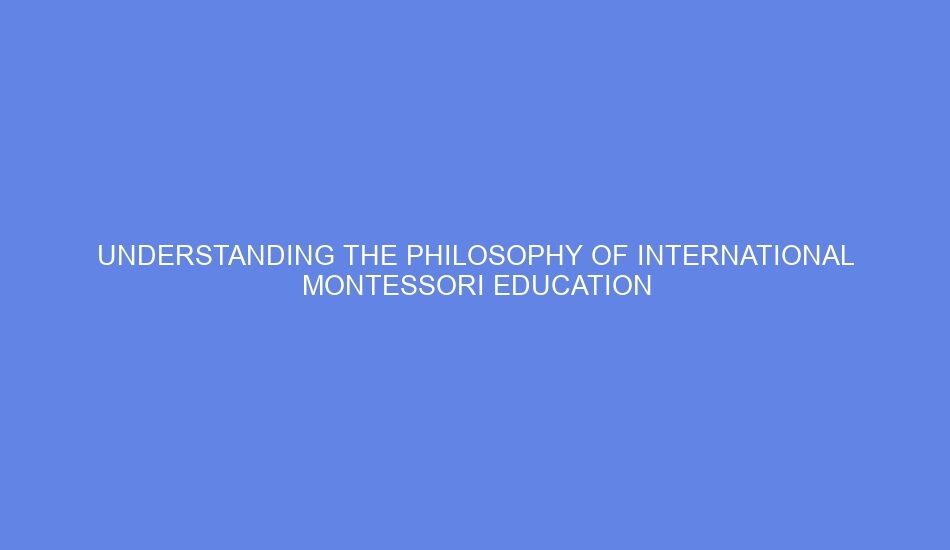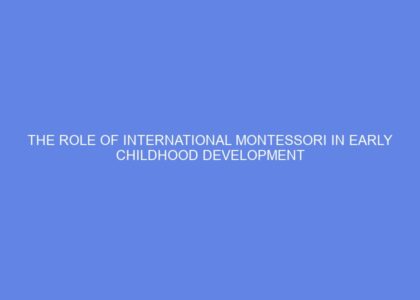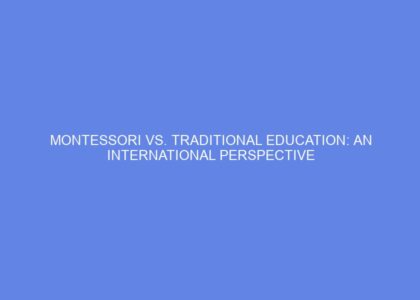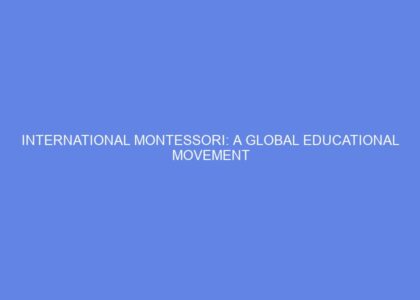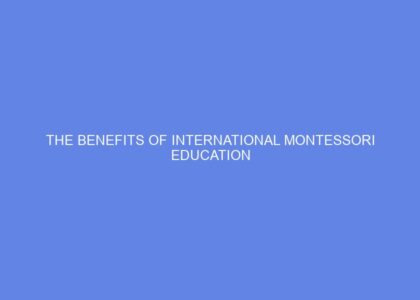The International Montessori method is a globally respected educational philosophy rooted in the pioneering work of Dr. Maria Montessori, an Italian physician and educator. Developed over a century ago, the Montessori approach has proven its adaptability and relevance across different cultures and countries. It is not merely a teaching method but a comprehensive educational philosophy that emphasizes child-centered learning, respect for individuality, and the natural development of children.
At the core of Montessori education is the belief that children are naturally curious and capable of initiating learning in a supportive, thoughtfully prepared environment. Instead of imposing knowledge through conventional instruction, the Montessori method encourages self-discovery, hands-on learning, and collaboration. Classrooms are multi-age, allowing younger children to learn from older peers and older children to reinforce their knowledge by teaching.
Internationally, Montessori schools share several common features, including the use of Montessori-certified materials, trained educators, and classrooms that promote independence and choice. Children move freely within the classroom, selecting activities that align with their interests. This fosters autonomy and builds decision-making skills early in life.
Another cornerstone of the International Montessori philosophy is “cosmic education,” particularly at the elementary level. This concept introduces children to the interconnectedness of all things—helping them understand their place in the universe and fostering a sense of responsibility and global citizenship.
In conclusion, International Montessori education is a timeless, adaptable approach that nurtures the whole child—emotionally, intellectually, socially, and physically. Its global influence continues to grow as parents and educators seek education that is both effective and respectful of children’s natural development.
Nidhin
For More Details Call: +917510220582

